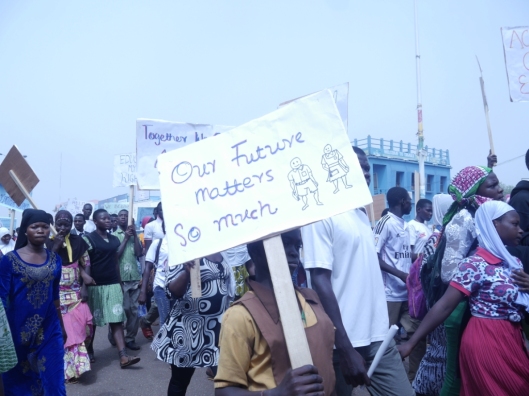Education in Ghana was informal before contact with the Europeans, in the informal setting people served as apprentices and understudied their masters. With time, they gained the relevant knowledge and skills hands-on to start their business or the profession. Today, we practice the FCUBE system (Free Compulsory Universal Basic Education) where we have formal classroom structures and organized systems to facilitate teaching and learning through reading, writing, speech, and examinations.
In a world where education is one key among several to success, Ghana in a broader sense has placed little value on the education of school children at the basic level in public schools as a nation. It is easy for one to conclude that quality basic education is equally distributed across Ghana until one gets to see the situation in deprived communities.
There is an albatross of an education gap between northern and southern Ghana that remains despite quality education indicators confirming the need for improvement. Perhaps education does not make it to the priority list of the national budget. Maybe it is just an item like many trivial others in the eyes of policymakers and implementing partners or we have misplaced our priorities as a nation. A recent fact-finding visit to some four schools in Tamale in the northern region of Ghana gives credence to the assertion.

Above is a wooden classroom structure for children in a basic school in Tamale the capital of Northern Ghana revealing the foundation has cracks, a clear indication of our education system. Most public schools in the north have either cement block structures, schools under trees or sheds or wooden structures as classroom facilities.
As though the crevices and gaps in our walls are not enough, the situation is worsened by insufficient desks in classrooms.
A visitor will often see four students using a dual desk meant for two students, even worse, some of the desks are rickety and school children are ushered to sit on the floor during class sessions, others are caught in a difficult experience shuffling between standing, squatting, sitting on the floor and lying on the floor while they struggle to share textbooks.
Another challenge that basic schools in Ghana face especially in the north is the inadequate supply of core textbooks to facilitate effective teaching and learning. Core textbooks are books on the compulsory subjects that are taught in the school including the native language and mathematics. These textbooks are needed by both teachers and students to ensure effective teaching and learning.
The condition of classroom structures, staff gaps, and other challenges is very dire up north the country. These de-motivates most teachers from going to public schools where they are posted; hence the plight of future leaders is worsened.
In farming communities during harvest, parents initiate their wards into child labor due to teacher absenteeism by making them assist with harvesting farm produce.
To downplay the relevance of quality education to the broader development of our countries will only retrogress our human resource development.
The essence of using tax revenues to fund educational projects for developing countries like Ghana is critical. Ordinary citizens pay more taxes than multinationals and corporations due to tax incentives offered to corporations, tax-dodging/evasion and Base Erosion and Profit Shifting (BEPS). However, ordinary citizens and market women are not enjoying the fruits of taxes as they should because this shows in the poor nature of our education system and the type of education our children are receiving.
Governments must make strict tax reforms where necessary. Governments can decide to reduce the tax incentives they offer, in particular, the most harmful types such as tax holidays and discretionary incentives. They can also make sure that they critically assess the full costs of tax incentives through published ‘tax expenditure studies’, and that tax incentives are subject to parliamentary scrutiny and public debate to make sure we reap the full benefits of the taxes due us as a nation. Revenues generated from progressive tax reforms will go a long way to enhance budgets for education and transform the current education sector into a more competitive and sustainable one.
Besides, the public must be involved in making educational policies that affect them from the grassroots level up, so that they are not merely presented with what has already been decided upon when they will bear the brunt of poor education the most. If governments of developing countries fail to involve the masses in transforming the current education sector through positive tax laws, a time will come when leaders will incur the wrath of the masses with regards to their human resource development.

Daniel Nii Ankrah ©
+233249749489
dnankrah1@yahoo.com
REFERENCES
- #TaxPower – ActionAid’s campaign explained ActionAid, July 2013
- Tax Power Campaign Glossary
- Photos by Marina Tota AND GP Campaigners 2015



February 2, 2016 at 11:37 am
Nicely written Sir, it is also the case with Nigeria and other African Nations. The need for Quality Basic Education can not be over emphasised and tax is a sustainable means of funding Education. We must get our Tax systems right in Africa for Quality Education and a Better Future. Thank you.
February 2, 2016 at 4:39 pm
I appreciate your read and comment Oga John 9ja. Indeed we must rise up to the tax task as a continent for a better Africa.Thank you.
April 29, 2016 at 9:29 am
In the southern part (central region) where I teach…….. The school is under a shed. The office is someone’s cocoa shed. Bro, speak for the unspeakable. Our taxes must put to good use.
April 30, 2016 at 7:27 pm
This is proof that the issue being discussed is spread across the country including cities. I appreciate your comment Sir Poka and I look forward to a joint effort on tax for Education.